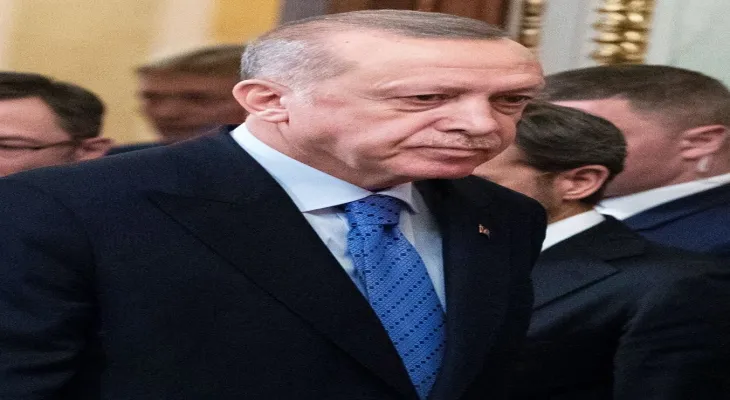Search here
Newspaper
Search here

Arab Canada News
News

Published: October 24, 2024
Turkey "secretly" prohibited the export of U.S. military equipment to Russia after the United States warned Ankara of "consequences" if it did not stop sending American-made goods that Washington and its Western allies consider vital to Moscow's war efforts in Ukraine, according to sources for the "Financial Times."
Informed sources told the British newspaper that the Turkish electronic customs system no longer allows exporters to proceed with new shipments to Russia, after previously enabling them to transport goods there.
The "Financial Times" reported that the trade restrictions, which affect civilian aspects, such as microchips and remote control systems, which Western allies claim are used in the arms industry, have not been publicly announced due to "political sensitivities."
Turkish President Recep Tayyip Erdoğan has positioned himself as a potential "peace maker" in the Ukraine war while maintaining warm relations with Russian President Vladimir Putin. The two men met at the BRICS summit in Kazan on Wednesday, but the "quiet ban" on military exports to Russia is the latest sign of Turkey's retreat from its role as a lifeline for Moscow's war machine, according to sources.
Turkish banks sharply reduced their dealings with Russian counterparties this year after the United States issued an executive order threatening to impose sanctions on lenders processing transactions for the Kremlin's war machine.
Washington has long feared that Turkey could be used as a conduit for Russia to access military-related goods, a suspicion that has strained relations between the allies.
These goods include advanced electronics that regularly appear in missiles and drones downed in Ukraine, such as processors and memory cards, as well as machine tools and other equipment used in weapon production.
The United States is concerned that Turkey has become a "major hub through which Western-made electronics, including processors, memory cards, and amplifiers, are making their way to Russian missiles and drones, representing a violation of export controls," and that operational tools are "another source of concern for Washington and its allies."
U.S. Pressure
The Biden administration has sent senior officials to Turkey in an effort to pressure Erdoğan's government to take action, while also imposing sanctions on Turkish companies for their trade with Russia.
Turkey's exports of these goods increased following Russia's invasion of Ukraine, rising from about $3 million per month at the beginning of the war to a peak of around $38 million in December 2022, according to official Turkish government statistics. In August of this year, they recorded about $4.1 million, the latest available figures.
The recent decline in direct trade is believed to be partly attributed to a shift in some goods entering the battlefields, which are exported from Turkey to intermediaries such as Kazakhstan and Azerbaijan before ultimately reaching Russia. The new Turkish trade restrictions do not affect exports to these countries.
In August, Matthew Axelrod, Assistant Secretary of Commerce, who leads U.S. efforts to keep sensitive technology out of the hands of America's adversaries, met with Turkish officials and executives in Ankara and Istanbul.
At that time, he warned Turkey that it would face "consequences" if it did not take steps to halt dealings with Russia on goods entering the battlefields. Axelrod is a senior official in the Bureau of Industry and Security, which has broad powers to enforce harmful export controls.
Axelrod told the "Financial Times" in response to inquiries about signs that Turkey has reviewed its policy regarding the sending of U.S. goods to Russia: "We believe the Turkish government has heard and understood our concerns, and we are optimistic that we will see an increase in cooperation in the future."
The newspaper states that China remains the most important supplier of these high-priority goods, having shipped goods worth $377 million to Russia in July 2024. Indian exports to Russia have risen to nearly $100 million per month, nearly entirely driven by a surprising surge in the flow of computing devices and components, including Apple computers assembled in China and sophisticated servers designated for use in AI-focused data centers.
Comments